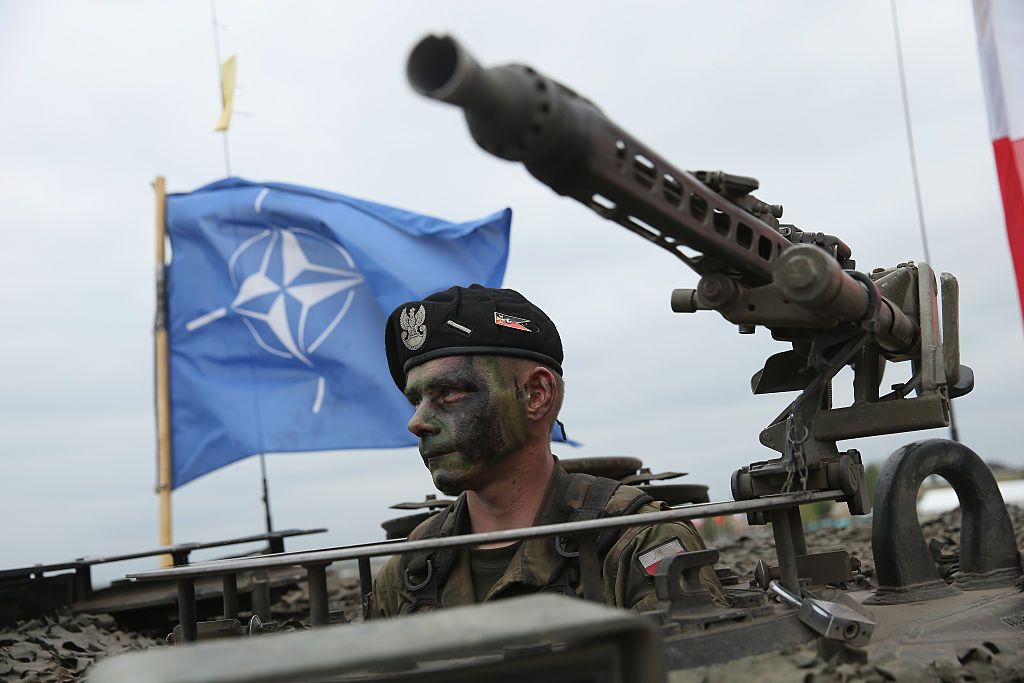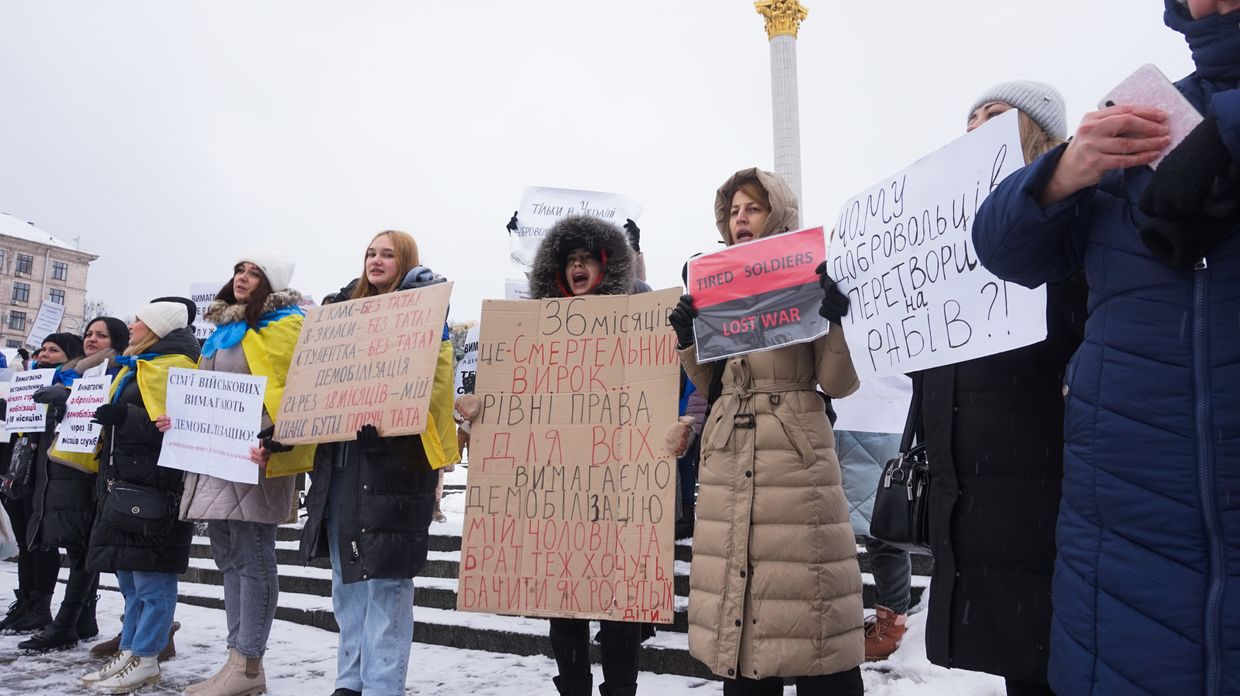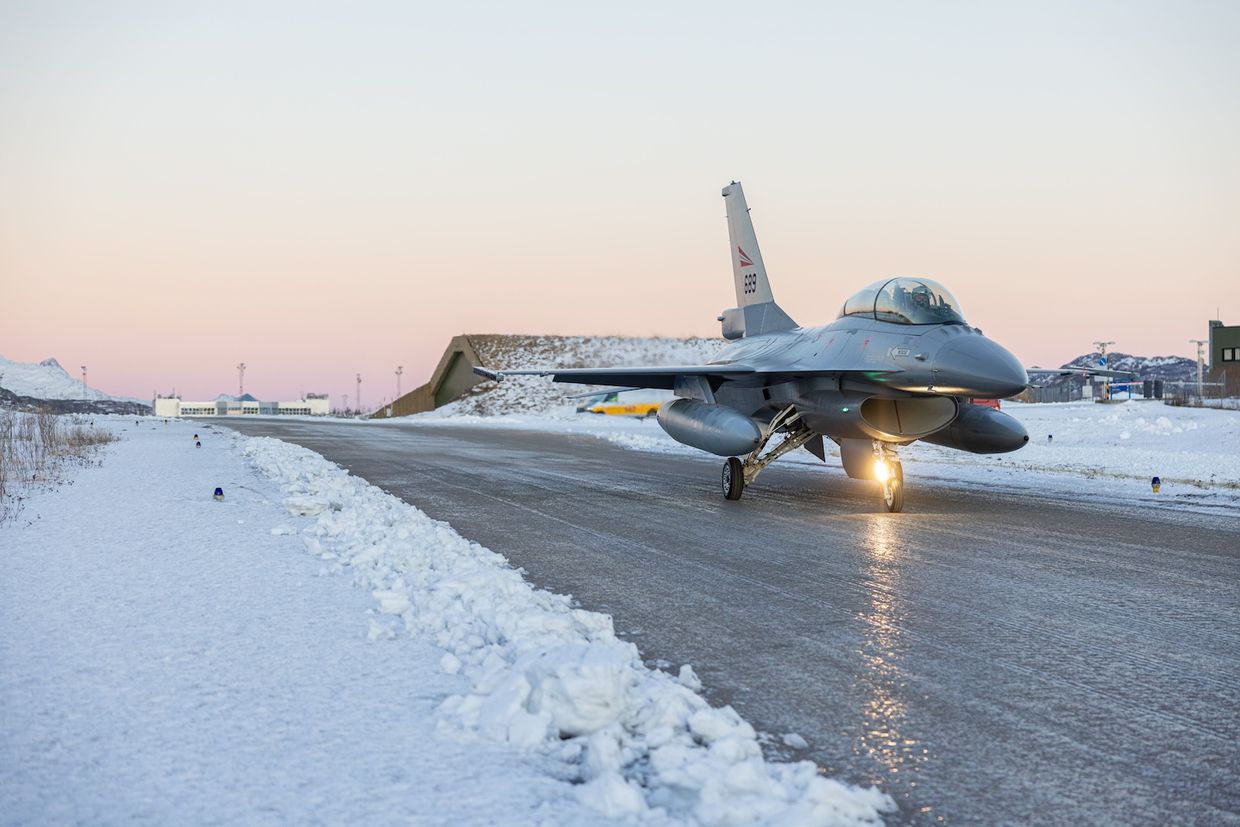Ukraine war latest: Russian railways reportedly hit by sabotage attacks; US House Speaker Johnson signals no Ukraine aid currently possible

Key updates on Jan. 17:
- House Speaker Johnson says no deal on border, Ukraine aid currently possible ahead of meeting in White House
- Military intelligence: Railways in western Russia hit by sabotage attacks
- Germany delivers tank ammunition, vehicles to Ukraine
- RFE/RL journalist wounded in Russian mortar attack in Zaporizhzhia Oblast
- Media: Sanctions forcing Russian companies out of Cyprus
As U.S. President Joe Biden and top congressional leaders from both parties are set to meet on Jan. 17, Speaker of the House Mike Johnson said that the time is not right for a deal on immigration and border issues that could pave the way for approval of new aid for Ukraine.
Politico reported on Jan. 16 that Biden had called for a bipartisan meeting of top leaders to try and hammer out a deal on border issues, Ukraine aid, and other spending issues. The U.S. has been stuck in internal battles over spending for months, stretching as far back as the ousting of previous Speaker of the House Kevin McCarthy in October 2023.
Senate Republicans blocked the approval of $61.4 billion in aid for Ukraine in December, largely over concerns the bill did not contain border security measures.
"I don’t think now is the time for comprehensive immigration reform because we know how complicated that is,” Johnson said on the morning of Jan. 17.
"We have to secure our own border before we talk about doing anything else," he added, saying that he had already told Biden that he was not ready to make a deal earlier in the day on the phone.
"I’m going to tell the president what I’m telling all of you, what we’ve told the American people: border, border, border," Johnson said.
Johnson's other comments on Ukraine indicated that his concerns about the ability for new aid to be passed were not limited to border issues. Republicans have a very slim majority in the House, and some members have said they are categorically opposed to further aid for Ukraine, regardless of compromises on the border and immigration.
Military intelligence: Railways in western Russia hit by sabotage attacks
Railway tracks in Russia's Saratov, Yaroslavl, and Nizhny Novgorod oblasts have been targeted in sabotage attacks, Ukraine's military intelligence agency (HUR) reported on Jan. 17.
"Unknown opponents of Putin's regime once again burned several relay cabinets on the railway" and other parts of the track used for military logistics, the HUR said.
The agency shared a video compilation of what appeared to show multiple arson attacks on relay boxes and other parts of track infrastructure.
As a result of the reported sabotage, railway traffic on certain track sections was "paralyzed," according to the HUR.
While the HUR did not state whether it was involved in the attacks, a number of incidents on Russian railways have been linked to Ukrainian intelligence services in recent months.
In November, the HUR claimed responsibility for its role in a joint operation with local resistance that disrupted trains in the region around Moscow.
Ukrainian media also claimed in late November and early December that the Security Service of Ukraine (SBU) carried out two sabotages on the Baikal-Amur railway in Russia's Buryatia Republic.
The Kyiv Independent has not independently confirmed these reports.
Russian Railways reported that 14 freight train cars were derailed in Russia's Far East on Jan. 8. The day before, there were reports of explosions at a railway track by an oil depot on the outskirts of Nizhny Tagil, an industrial city near the Urals.
Germany delivers tank ammunition, vehicles to Ukraine
Germany has handed over ammunition for Leopard 1 tanks, as well as helmets, drones, and vehicles to Ukraine, the German government announced on Jan. 17.
The supplies come from the German army and government contracts with private companies.
The delivery includes 16 Zetros tanker trucks, eight armored personnel carriers, five border protection vehicles, and three other vehicles.
The delivery also includes 50 mobile satellite terminals, 25 Heidrun reconnaissance drones, and 1,840 helmets.
Germany said it also plans to deliver 15 Gepard anti-aircraft guns to assist Ukraine with air defense but due to security concerns, does not provide details on dates of delivery.
German Chancellor Olaf Scholz told U.S. President Joe Biden on Jan. 16 that Berlin will unilaterally provide Ukraine with over seven billion euro in security assistance and humanitarian support in 2024.
Journalist wounded in Russian mortar attack in south Ukraine
Russian mortar attacks in Zaporizhzhia Oblast on Jan. 17 wounded Dmytro Yevchyn, a journalist with RFE/RL's Crimea-focused service, the outlet reported.
According to the Committee to Protect Journalists (CPJ), at least 17 journalists have been killed in Ukraine since the beginning of the full-scale invasion. An unknown number have been wounded.
RFE/RL said that Yevchyn, who has worked with the outlet since 2018, was injured in the leg by shrapnel from a Russian mortar strike while filming a video near the the front-line city of Robotyne.
Ukrainian troops nearby gave Yevchyn first aid and helped him evacuate from the area. He was later taken to a hospital in the city of Zaporizhzhia.
Doctors told RFE/RL that Yevchyn would remain in intensive care for the immediate future, but that an operation was successful.
Russian media: Sanctions forcing Russian companies out of Cyprus
Russian companies have been increasingly leaving Cyprus as Western sanctions impact their ability to operate, the Russian state-controlled media outlet Kommersant wrote on Jan. 16.
According to Kommersant, many of the Russian businesses feeling the bite of Western sanctions have chosen to relocate to Russia or to countries friendlier to Russian business, such as Kazakhstan or the United Arab Emirates.
A massive leak of financial documents from Cypriot financial service providers in November 2023, dubbed "Cyprus Confidential," and a subsequent investigation by the International Consortium of Investigate Journalists (ICIJ) found that financial services in Cyprus actively helped Russian oligarchs and allies of Russian President Vladimir Putin evade sanctions.
Following the disclosures, Cypriot President Nikos Christodoulides said he invited financial crime experts to assist with investigations into sanctions circumvention.
There should be “absolutely no shadows” over Cyprus because it harms the ability to attract "quality" foreign investment, he said.
Recent reports also show that Cyprus' crackdown on Russian money may have been fruitful.
The Moscow Times said in December that the U.S. Federal Bureau of Investigation (FBI) had increasingly become interested in Russian business and oligarchs in Cyprus, prompting the departure of at least 10 of the largest Russian businesses operating on the island. It is unclear if the FBI's growing focus on Cyprus was related to the ICIJ report.
Cyprus has long been considered one of the primary destinations in Europe for Russian money.
The AP wrote that in 2013, 40% of the country's total deposits came from Russians. Despite Western sanctions implemented after the beginning of the full-scale invasion, Russian and Belarusian money has still flowed to the island nation.
The Russian influx to Cyprus has not just been limited to the economic sphere. Long a popular destination for Russian emigres, both Cyprus and the Turkish-occupied region in the northern part of the country have become seen the increased relocation of Russians since the full-scale invasion.
Almost 40,000 Russians settled in Northern Cyprus in 2023 alone, the Guardian wrote in September, out of a total population of 382,000 in the de-facto republic.















